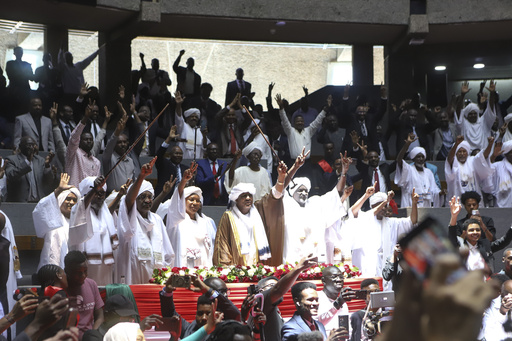NAIROBI, Kenya — On Sunday, Sudan’s paramilitary group, known as the Rapid Support Forces (RSF), along with its allies, formalized a charter that facilitates the creation of a parallel governing authority. This development comes amid notable advancements by the Sudanese military against these rival factions.
The signing event took place privately in Kenya’s capital, Nairobi, following a contentious public gathering last week at a facility owned by the Kenyan government, which faced disapproval from Sudan’s Foreign Ministry in Khartoum.
Despite the ongoing violence and accusations of human rights violations against the RSF—including claims of committing atrocities and acts of genocide after hostilities erupted with the Sudanese army in April 2023—the signatories expressed their intent to form a government that promotes “peace and unity.” Concerns from various human rights organizations and the global community continue to loom over these developments.
The conflict in Sudan has resulted in over 24,000 fatalities and displaced more than 14 million people, roughly 30% of the nation’s population, as reported by the United Nations. Additionally, around 3.2 million Sudanese individuals have fled to neighboring countries to seek refuge.
In a recent update, the U.N. reported that its human rights office recorded over 4,200 civilian deaths throughout 2024 thus far, although this figure is believed to be an underrepresentation of the actual toll.
Currently, the military forces of Sudan are gaining a robust advantage in the ongoing strife, with the RSF facing significant setbacks. They have lost crucial areas, including the city of Wad Medani, which serves as the capital of Gezira province, along with various other territories within the region. Furthermore, the Sudanese military has reinstated its control over the nation’s largest oil refinery.
In addition, there are signs that the RSF is increasingly losing its grip on the Greater Khartoum region, which encompasses major cities such as Omdurman and Khartoum Bahri.


